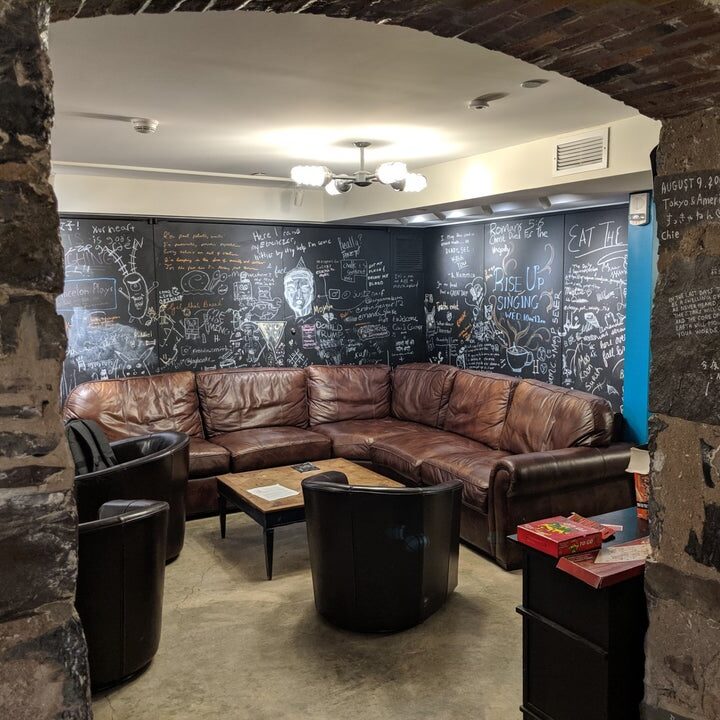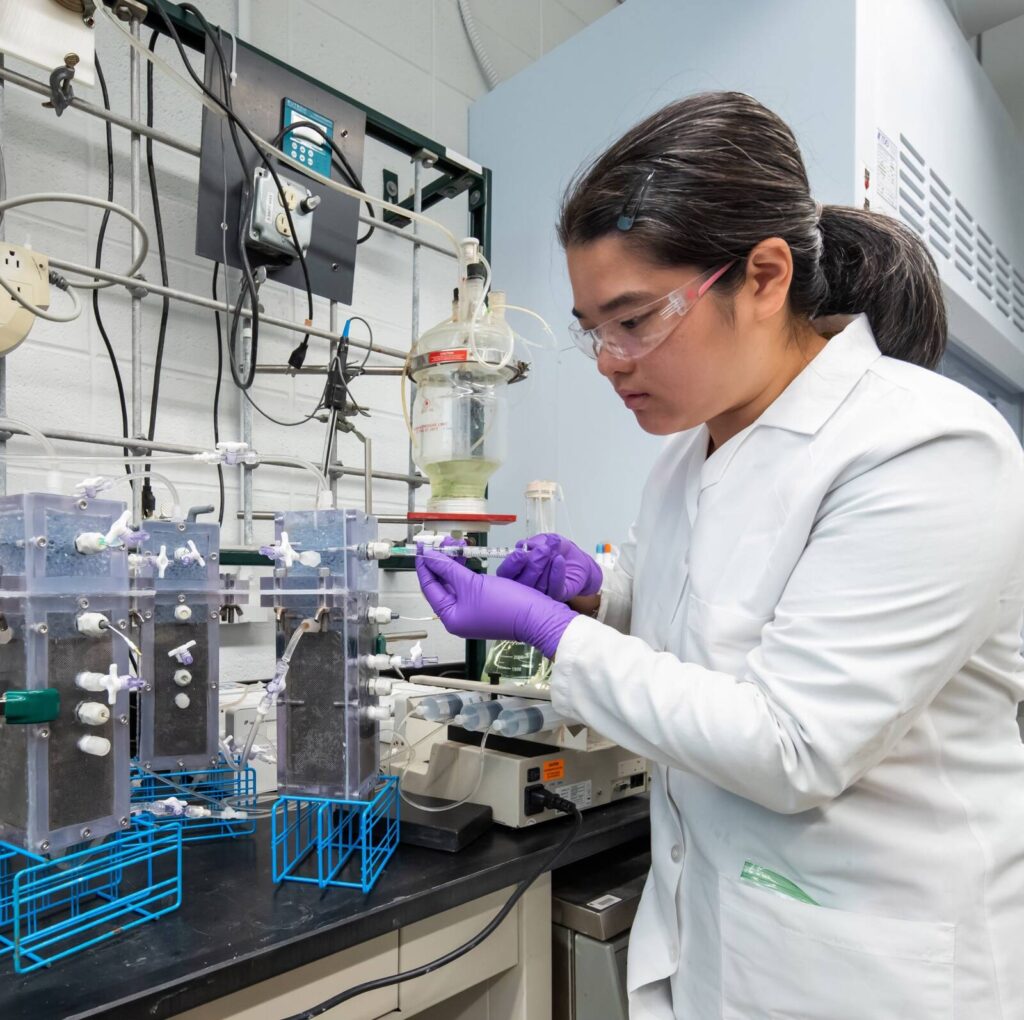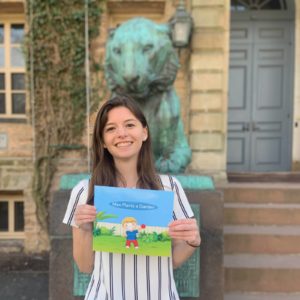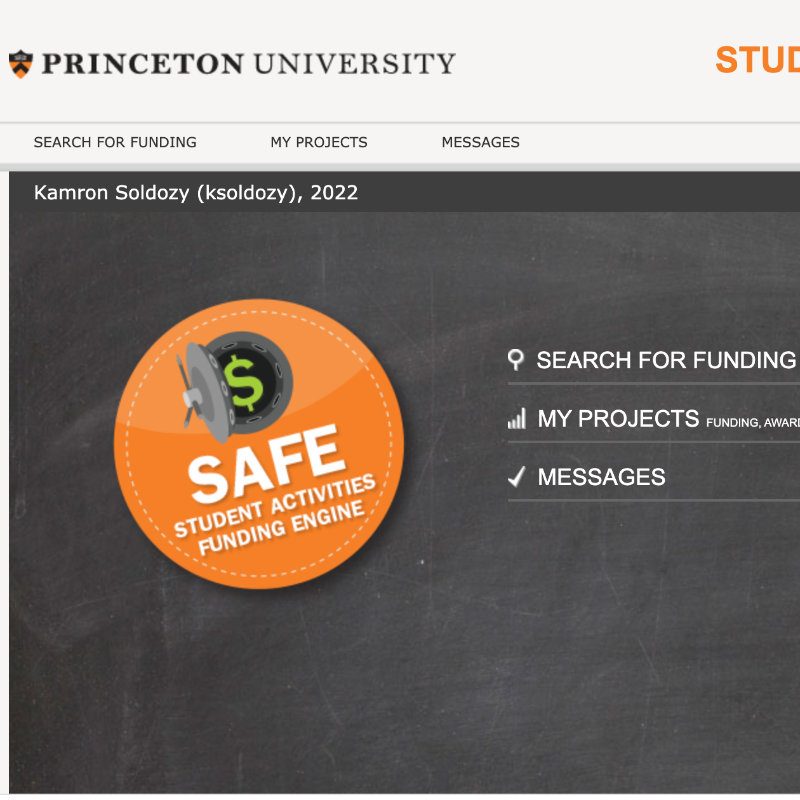Like most students at Princeton, I am really looking forward to next semester. Having taken into account the pandemic and the Princeton community’s well-being, the university is offering all undergraduates the option to return to campus, even though most classes will still largely be held online. Consequently, Spring 2021 will be the second time since the pandemic began where we can experience a different side of Princeton – a hybrid semester, where there will be a mix of in-person and virtual classes. A hybrid semester presents a lot of opportunities to enhance the educational experience from a fully virtual semester like the one we had this fall. Next semester, I am looking forward to the small things — like seeing more students outside of classes and interacting with them as guidelines allow. However, it is likely that there will be new and old challenges for students on and off-campus. Although it is difficult to predict exactly how the semester will unfold, I outline three challenges that stand out to me, so that we can prepare for them beforehand.
Continue reading Coming Back to Campus in January? A Look into a Hybrid Semester and its ChallengesInterdisciplinarity and the Political Imperative of Research: An Interview with Daniela Gandorfer, Part I
Specializing in legal thought and critical theory, Daniela Gandorfer is a graduate of the doctoral program in Princeton’s Department of Comparative Literature, a postdoctoral scholar at UC Santa Cruz, and co-director and head of research at the Logische Phantasie Lab (LoPh). LoPh, a research collective recently founded by Princeton alumni and current students, describes itself as a “comprehensive research agency that actively challenges injustices resulting from political, legal, economic, social, physical, and environmental entanglements by means of specific investigations.” I want to thank former PCUR correspondent Rafi Lehman, now the Development Coordinator at LoPh, for putting me in touch with the research collective’s team.
Over email and Zoom, I was able to talk to Daniela about the critical methods employed by LoPh, its relationship with the established academy, and the benefits and limits of an interdisciplinary research approach.
This interview has been edited for length and clarity. Below is part one of a two-part interview.

Through Thick and Thin: Going over PSETs during Remote Learning
Getting PSETs done over Zoom can be a combination of awkward and challenging. To assist with that task, fellow PCUR Correspondent Ryan Champeau recently wrote a post with suggestions for working on PSETs in the age of remote learning. A great tip in that article is to collaborate with friends when permitted under a course’s collaboration policy. However, given that students can’t meet in person to work on assignments anymore, I’ve found the process of checking over PSETs to be a bit more difficult than usual.
Specifically, I’m taking QCB 455, an introductory course to quantitative and computational biology in which there are four total problem sets. As a neuroscience major in a class filled with computer science majors and some graduate students, I didn’t really know many people in the course. Going over the first PSET with people I didn’t know over Zoom felt a bit strange, but I’ve since found that there are actually a few benefits to going over PSETs that are specific to the remote experience. In this post, I’ll go over the three strategies I’ve started to use when collaborating on PSETs for my classes:

Turning a Laboratory-Based Research Proposal into a Remote Project
Last spring semester, I was completing my junior independent work in a bioengineering lab on campus. My project was lab-heavy, as I was investigating the extent of DNA damage (measured as type and frequency of breaks occurring in the DNA) that occurs in persister subpopulations (cell populations with non-inherited tolerance to antibiotics) of E.Coli cells when treated with antibiotics and other DNA damaging agents. I had prepared a series of experiments to test these conditions, most of which would be performed after returning from spring break. However, those plans changed in March, when students were sent home due to the COVID-19 pandemic.
Like many other lab researchers, I was left with incomplete experiments and an upcoming deadline to present my work. Independent research for the chemical and biological engineering (CBE ) department is only one semester long, and I spent most of the first half of the semester doing literature review, planning experiments and learning lab techniques. With only eight weeks left before my final paper and presentation deadline, I worried about the possibility of having to change my entire research topic into something that could be completed remotely. However, along with the lead researcher of the lab, or principal investigator (PI), and graduate student mentor, we developed a plan to easily transition the project I had already been working on into a remote project. In this post, I will give tips on how to conduct laboratory research remotely.

Doing Research Projects in the Wake of COVID-19
Recently, we’ve all had to do our best to adapt our coursework, extracurriculars, and past times to a remote format. Some activities – like hands-on research in a lab – may be difficult, or even impossible, to do over Zoom. For those of you looking to fill the gap, hackathons may be the solution. Hackathons are short programming events designed for students to learn new skills, meet new people, develop solutions to everyday problems, and win prizes. And because of the COVID-19 situation, many hackathons are turning virtual.
To hear a little more about what exactly hackathons are and who they might be a good fit for, I interviewed Princeton sophomore and Director of the TechTogether New York hackathon, Soumya Gottipati. For those of you who have recently hard your internships canceled, Soumya also let me know about internship opportunities you might be interested in!

Graduate School Application Process (Part I): Deciding to Apply
This semester, as I return to writing for PCUR, I will be publishing a series of posts describing my experience with the graduate school application process, applying to a variety of developmental psychology PhD programs. Throughout the process, I was fortunate enough to have guidance from my independent work adviser and other senior members of my research lab on campus. However, even with this support, I often found that the process was incredibly opaque. I spent hours searching for answers to seemingly simple questions, often never coming to a definitive conclusion. I hope to use this series of posts to shed some light on the many facets of the process. Although I can only speak to my personal experience, I hope to provide valuable information that can be helpful to students from a variety of disciplines.

Before getting into the nitty gritty of the application process itself, the first step is deciding whether or not you want to go to graduate school in the first place. Graduate school, especially PhD programs, are long, so before you commit to spending up to 6 years in a program, it is important to make sure grad school is the right path for you.
Continue reading Graduate School Application Process (Part I): Deciding to ApplySecuring Funding to Attend a Conference
In a recent post, I wrote about submitting an extended version of my R3 to the Gender, Work, and Organization Conference in the United Kingdom. Although I’m very excited to attend the conference, a new challenge has recently presented itself to me: securing funding.
In this post, I’ll detail some of my experiences finding funding for my conference. Considering that many of you have recently applied for Princeton Research Day and may be considering submitting your manuscripts for publication in a journal or for a conference, I hope this post is helpful!
Continue reading Securing Funding to Attend a ConferencePreparing for a Lab-Heavy Semester
As I began choosing my courses for next semester, I knew I had to take CBE core lab, as this is a requirement for the concentration during the spring semester of junior year. In addition, I was really excited about conducting independent work in a new bioengineering lab, which I am hoping will be the lab that I stay in for my senior thesis. With both 7 hours of core lab per week and an expectation of 20 hours of independent work per week, I know I will be spending a lot of time in the lab next semester, so I have started to prepare for that. If you are also taking core lab while doing independent work, or if you are enrolled in multiple lab-courses, such as chemistry, molecular biology and physics at the same time, you will likely need to plan ahead. In this post, I will offer tips on how to prepare for a lab-heavy semester:

Finding Funding for Unpaid Internships
We spend a lot of time finding and deciding what internships and jobs to pursue over the summer. There are quite a few posts on this blog alone that help with that process, including this one. After exploring my options, I think I know what I’ll be doing this summer: staying on campus to do research in a neuroscience lab (an experience I’ll talk more about in a future post).
However, knowing what I’ll be doing this summer isn’t all there is to finalizing my summer plans. For one, I don’t know how my experience will actually be funded. Second, I’m unsure where I’ll be staying for the duration of my research.
To better finalize my plans, I turned to SAFE, the Student Activities Funding Engine. SAFE is a website where students can apply for funding for internships and other activities. In addition to finding a relevant funding source for my summer plans, I came across many other interesting funding opportunities for students who have secured unpaid internships over the summer. I’ve gone ahead and summarized a few of them below.

Research on Campus: Not Just for Juniors and Seniors!
Colleges like Princeton love to brag about their high rates of student involvement in research: our admissions pamphlets are peppered with student testimonials about the accessibility of professors and the university’s commitment to undergraduate research. But although Princeton does provide incredible resources, doing research with professors doesn’t always feel accessible. Especially as a first-year or sophomore student, it can be challenging to find research opportunities outside of classes (except during the summer).
As a first-year student, I definitely felt this pressure in the fall semester. I knew I wanted to be a part of research on campus as soon as possible, but I worried that no professor would want to work with me. After all, I was less experienced than many older students, and as a CBE major, I knew that quantitative and technical skills were of paramount importance in my field. Though I was afraid of being ignored (or worse, rejected!) by professors, I decided to reach out anyway. I emailed my MOL214 professor (who runs a lab in CBE) hoping that he would help give me an introduction to the department. When I went to his office for a simple discussion, he ended up offering me a position, and I’ve been working in his lab ever since! Continue reading Research on Campus: Not Just for Juniors and Seniors!

